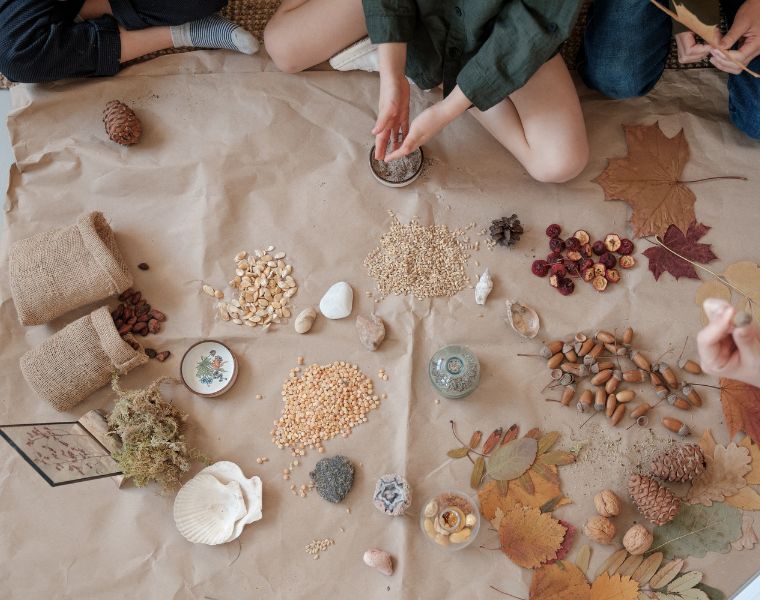Mathematics… A subject that every student either loves, or loves to hate. So how do you foster a love of, or appreciation of maths in young children?
First, I want to tell you a little story. A story of a little girl. Let’s call her Lisa. Lisa is a boisterous, energetic 6 year old girl who loves learning and begs her mum to go to school everyday. She sits at the front of class at every opportunity, thrusts her hand up in the air and proudly gives answers to Every. Single. Question (whether she knows the answer or not). Lisa constantly seeks out connections and affirmation from everyone around her. Lisa loves to learn through doing; she explores, hypothesises and attempts new and inventive ideas at every opportunity. 
One day in class, her teacher started teaching the beginnings of what we as adults would call multiplication. They chanted, recited and memorised strings of numbers then grouped square counting pieces into corresponding groups. Now for all of Lisa’s love of learning, rote memorisation and the abstract square blocks did not connect to her understanding of the world and she repeatedly got her answers wrong. The teacher turned to her, after yet another incorrect answer and said:
“It’s OK not to be good at maths Lisa. You are great at reading and writing. We can’t all be good at everything.”
At that moment, Lisa was set on a lifetime of self-talk. “I’m not good at maths.”
Remember, the words we say to children, become their inner voice throughout their lives.
Lisa is just one child, of many children that become those adults who love to hate everything mathematics.
Children Learn Best Through Play
Jean Piaget believed that “Play is the work of childhood.” However let us reframe that, for to children, play is not work – play is life. It is through play that children make sense and meaning of their world, it supports their development, supports neurocognition, builds on physical development as well as social-emotional development and has so many other benefits. Knowing this about children, knowing the limited engagement that comes from more formalised learning environments; let’s embrace the exploration of more traditionally ‘academic’ concepts such as numeracy, and flip it into a play-based, child-centric focus.
All in the Aim of School Readiness
For children to be adequately prepared for school, they have no need of complex mathematical understandings. In fact, all of the research points at children most needing agency, independence, emotional understanding, social skills and the physical skills required to be able to facilitate the learning environment. That sort of learning happens most strongly through physical, active, child-led play, provided in open-ended uninterrupted time for exploration in both indoor and outdoor environments.
 Pre-cursor Mathematical Concepts
Pre-cursor Mathematical Concepts
Recent literature by Mary Hynes-Berry, Jie-Qi Chen & Barbara Abel explores Precursor Mathematical Concepts as vitally important before traditional mathematical concepts can be explored. These include:
- Attributes – where children explore a property or quality that describes or classifies an item.
- Comparison – where children begin to recognise similarities and difference.
- Change – where children begin to understand that something can happen as a process that leads to something becoming different.
- Pattern – where children start to become aware of recurring predictable structures.
Without these concepts, children learning to count to 100, skip count by twos or add numbers together, will not synthesise their learning and whilst they may be able to repeat the concepts, the deeper learning and critical thinking and understanding behind the concepts may not be embedded.
The Solution
Play, play, and when you think you have done enough, play just that little bit more. Children will grow deeper and far more complex understandings of concepts such as patterns through shared songs, nursery rhymes and stacking of rocks outdoors than with flashcards and matching shape games at a tabletop activity. When pre-cursor mathematical concepts are woven into everyday interactions, it invokes a curiosity, excitement and hunger for knowledge in children.
So to answer our question, how do we foster a love or appreciation of maths in young children? We do it through playful, child-led play experiences where educators explore alongside children and are co-constructors of learning.
Plus side, it is more fun too!
REFERENCES
Kenneth R. Ginsburg, MD, MSEd and the Committee on Communications and the Committee on Psychosocial Aspects of Child and Family Health Pediatrics (2007) 119 (1): 182–191.https://doi.org/10.1542/peds.2006-2697
Geva S and Fernyhough C (2019) A Penny for Your Thoughts: Children’s Inner Speech and Its Neuro-Development. Front. Psychol. 10:1708. doi: 10.3389/fpsyg.2019.01708
Precursor Math Concepts: The Wonder of Mathematical Worlds with Infants and Toddlers, Mary Hynes-Berry, Jie-Qi Chen & Barbara Abel, 2021